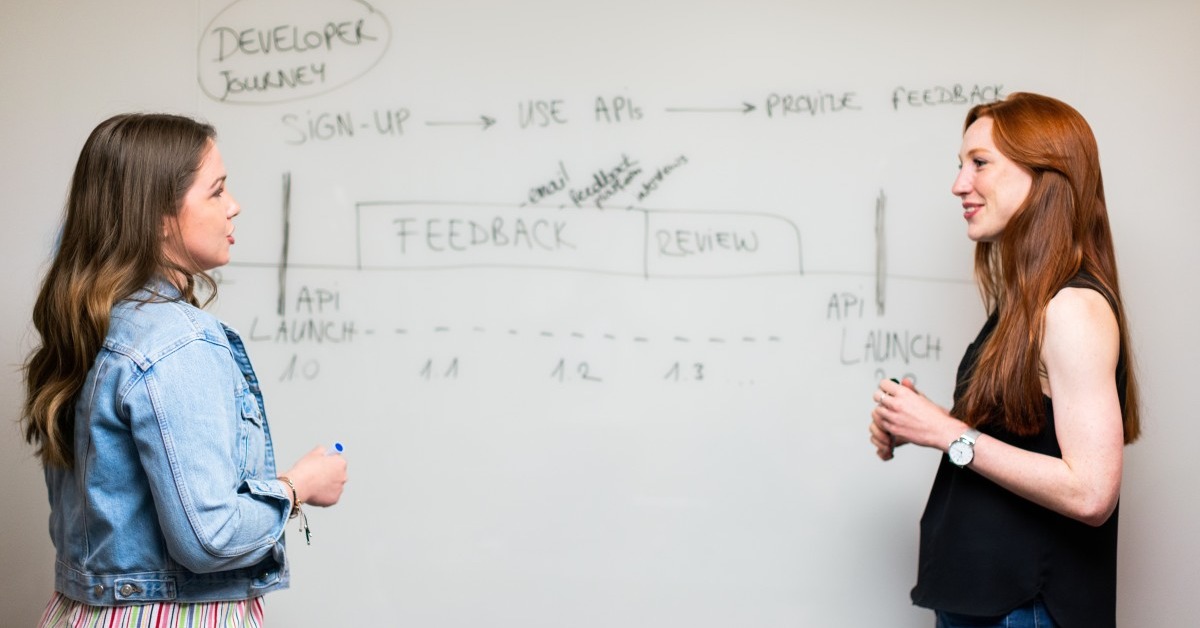
How to Become a Licensed Mental Health Social Worker
We explain the steps necessary to become a licensed mental [...]

A Master of Social Work (MSW) can open doors to a breadth of social work jobs at the micro, mezzo, and macro levels. Career paths for licensed clinical social workers, administrators, mental health professionals, school counselors, therapists, and medical or healthcare social workers, to name a few, all involve an MSW.
It’s an increasingly popular degree. According to the Council on Social Work Education (CSWE) 2020 Statistics on Social Work Education in the United States, MSW program enrollment increased by 25.9 percent from 2010 to 2020, while the number of accredited master’s programs increased by 14.3 percent from 2019 to 2020 and by 53.2 percent throughout the decade. In 2020, 75,851 students enrolled in an MSW program; more than a third of those attended part-time.
The field is growing to meet demand. Nowhere is that more evident than in the response to the COVID-19 pandemic, which called on social workers to assist with:
Social workers wear many hats to help those in need directly or indirectly. This article discusses what an MSW is, who needs one, how you can earn an MSW in as little as one year through an advanced standing program, admission requirements, and whether you should pursue an MSW degree.
A Master of Social Work (MSW) is a graduate-level degree for aspiring social workers seeking continuing education for career advancement opportunities. MSW programs require students to develop professional knowledge through coursework and field education and adhere to the nine social work competencies defined by the National Association of Social Workers (NASW). Core curricula for most MSW programs include courses in:
In addition to the core classes, MSW programs offer specializations, certificates, or dual degrees. The aforementioned CSWE report identifies the top five specializations as:
Popular certificates include school social work, aging or gerontology, substance abuse, child welfare or advocacy, and trauma. The online MSW program at Tulane University School of Social Work offers opportunities for students to pair their MSW with a certificate in mental health, addictions, and the family, or disaster and collective trauma.
As you consider MSW programs, check to make sure your choices are CSWE-accredited. Accredited programs undergo a detailed process to confirm that they meet the highest standards.
| University and Program Name | Learn More |
|
Virginia Commonwealth University:
Online Master of Social Work
|
Not all social work jobs require an MSW. Entry-level or generalist roles are essential and represent a great opportunity to get your foot in the door of the field of social work. Bachelor of Social Work (BSW) degree holders can land meaningful roles at social service agencies, homeless shelters, public schools, and community centers, working directly with individuals, families, groups, or communities at the micro level.
Some positions, however, require an MSW. Clinical roles that diagnose and treat patients are open only to MSW holders. Advocacy roles that identify communities in need and lobby for social change and policy on their behalf often require an MSW. Employers of social welfare administrators and social work administrators typically require applicants to hold an MSW.
These specialized roles require advanced skills acquired through coursework and field placement hours. This expertise is necessary to identify and implement appropriate interventions and qualify for the mandated licensures.
Some master’s degree in social work candidates qualify for an accelerated option called advanced standing. Advanced standing programs welcome applicants who have completed a CSWE-accredited BSW degree in the previous five years. Advanced standing enables students to place out of core requirements already covered in their undergraduate degree studies so they can focus on specialized courses or electives to sharpen their skills.
Many online MSW programs offer an advanced standing option. Online study affords valuable flexibility to advanced-standing students and working professionals regardless of whether they attend on a full-time or part-time schedule.
The 48-credit hour advanced standing MSW program at Tulane University can be completed in as little as three semesters full-time or six semesters part-time. In addition to coursework, students must also complete their field placement requirement at a minimum of 24 hours per week for full-time students or 12 hours per week for part-time students.
The advanced standing program at the Virginia Commonwealth University School of Social Work also takes full-time students three semesters to complete. The program sequence consists of a specialized or focused curriculum, electives, and field placement requirements. Maryville University and the University of Kentucky follow a similar pattern.
A bachelor’s degree in social work is an undergraduate-level degree and the first step toward becoming a social work professional. A BSW program provides foundational knowledge through general courses, a social work-focused curriculum, supervised field education, and an option to choose from electives that delve into a specific area of interest. BSW students follow a guided sequence that includes general education requirements beneficial for introductory knowledge (psychology, sociology, humanities) during the first two years before progressing into the social work curriculum by junior year.
A field practicum typically takes place during the final semester. This applied practice semester-long internship leverages classroom instruction to drive experiential learning. Internship sites can include mental health clinics, child and family service agencies, substance abuse agencies, or domestic violence and homeless shelters. Through supervised training, students clock a minimum of 400 hours of field education to gain professional experience, preparing them for roles upon graduation such as:
BSW graduates from CSWE-accredited programs must pursue licensure, requirements for which vary by state. For individuals interested in working in the social work profession in a capacity that doesn’t require licensure, two-year associate degrees provide entry-level education for roles like patient advocates, rehabilitation aides, social services technicians, and other assistant positions. However, if you seek more interactive, hands-on responsibilities with clients, a BSW is the next step to working at the micro level to increase your impact.
An important final note: you do NOT need a BSW to enroll in an MSW. However, a BSW can qualify you for an accelerated (and less expensive) advanced standing master’s program.
Admission requirements for MSW programs vary. Advanced standing programs allow students to bypass core courses, reducing credit hours and costs through accelerated learning.
Traditional MSW programs typically require the following:
In addition to many of the traditional MSW program requirements, advanced standing programs require:
A Master of Social Work (MSW) vastly broadens your mastery of social work practices and, not coincidentally, your career opportunities. If you’re considering pursuing your MSW, taking stock of your career goals is an essential first step. Positions that involve clinical counseling or supervisory and policy-making roles at the macro level are not for the faint of heart but rather for professionals committed to the long haul. MSW degree holders can ascend into higher-paying positions like:
The latest CSWE report proves that interest and enrollment continue to rise; 31,750 Master of Social Work degrees were conferred in 2020. In addition, the job outlook seems promising for aspiring social work professionals. What does that mean for you? A job market that grows ever-more crowded with MSW recipients. That’s who you’ll be competing with when you apply for a job.
Enrolling in an advanced standing program, such as the programs provided at Howard University, Tulane University, University of Washington, and Virginia Commonwealth University, can help develop your skills and experience at an accelerated rate. It’s a great way to add a career-value multiplier to that BSW degree.
Questions or feedback? Email editor@noodle.com

We explain the steps necessary to become a licensed mental [...]

Domestic violence call centers in the US field 20,000 calls [...]

An MBA with a Healthcare Management concentration can equip you [...]

Getting an MAT or an MEd in Elementary Ed can [...]

All health data analysts sift and sort data to cull [...]
Categorized as: Social Work, Social Work & Counseling & Psychology